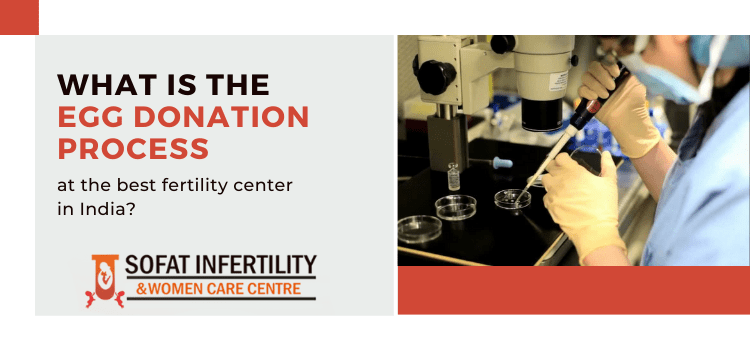Egg Donation Process In India
The egg donation process carried out at the fertility centre can be challenging and emotional. To make you at ease and comfortable you need to get all the information from the best fertility doctor. When you visit the best IVF Centre in Punjab the doctor will make sure that it is rewarding for the egg recipient and egg donor.
When an infertility couple consults our doctor at the infertility clinic in Ludhiana, the doctor makes sure to guide them in detail about the egg donation method. In case you have any query about the same, then right away you need to ask the doctor about the same.
Do you know?
What are the basic requirements of an Egg Donor?
|
Egg Donation Procedure
Step 1: Screening and Donor Selection
The egg donation process begins through screening of the egg donor and egg recipient. This is to ensure that both the candidates are in good health and they are a perfect match for one another. During the appointment, the doctor will let you know in detail about the egg donation procedure. Along with this, your psychological and background check is done at the same time. The medical screening results are obtained within 3 to 6 weeks.
Once the screening is done and the match is found, the next step is taken. The egg donation cycle will take anywhere between 2 to 3 months.
Step 2: Stimulation and Synchronization
The egg donor and recipient will be given oral contraceptive pills or injectable (Lupron) so that the menstrual cycle gets in sync. As per the doctor’s suggestion, the egg donor is going to take the injectable fertility drugs and the recipient is prescribed oral estrogen tablets. The medication helps to coordinate with the donor cycle so that once the eggs are fertilized they are put back into the recipient body at the right time.
Step 3: Procedure of egg retrieval
Once enough eggs are produced by the ovaries, the doctor will schedule an appointment to retrieve the eggs. Along with the egg retrieval, the sperm sample is taken either from the father or donor. In the meantime, the recipient needs to take the oral estrogen and progesterone vaginal so that the uterus is ready for implantation.
Step 4: Embryo transfer
Following that egg and sperm are kept together so that fertilization can take place. In this period, you need to discuss with the fertility expert on how many embryos you would want to get transferred.
In case, the current time is not favorable or there are certain complications, then the doctor will ask to get it transferred some other time. So, your embryo will be cryopreserved. When more good-quality embryos are produced, the doctor will suggest you get them preserved for future use.
Step 5: Following Embryo Transfer
Once the embryo is transferred you will be asked to stay at home, on an average of 3 days. The doctor will ask you to come to get a pregnancy test after 14 days.







